No, Using a Surrogate Doesn’t ‘Diminish Respect for Motherhood’
Kayla Shelfer was born without a uterus. She’s expecting a baby in about seven months.
“At 16 I was told that the only way I would have a child that shared my DNA would be via surrogacy,” she says. “If this were not an option, I probably would have lost every glimmer of hope to have a child and thought of myself as less of a woman. This glimmer of hope saved me from an even bigger emotional battle with infertility.”
The pain of struggling with fertility is massive and well-documented. “If we were to take away the hope that surrogacy brings to the infertility world, I believe that the mental health crisis would be even more detrimental than it already is,” Shelfer argues.
But there is serious push-back against legal surrogacy.
In 2017, Sarah Pitlyk, then a lawyer in Missouri, filed a legal brief in which she argued that using a surrogate has “grave effects on society such as diminished respect for motherhood and the unique mother-child bond.” She questioned the legitimacy and judgment of parents who conceived via surrogacy or IVF. Last Tuesday, Senate Republicans confirmed her as a U.S. district judge—a lifetime position.
The idea that women who have children via assisted reproduction are somehow less than mothers who conceived naturally isn’t just harmful, it’s ridiculous. As women like Shelfer who have gone through the gauntlet of assisted reproduction will tell you, it’s the hardest way to become a parent—there’s nothing diminished about it.
Naturally, Pitlyk’s confirmation has caused outrage from parents who have used a surrogate or IVF to build their families. More than 8 million babies have been born from IVF since the process first succeeded in 1978, and the number is climbing. These days nearly half a million lab-assisted babies are born every year. There aren’t great statistics on how many babies are born from using a surrogate—even today, the practice is hard to regulate. Together, surrogacy and IVF give those who can’t conceive the opportunity to become parents. It makes mothers and fathers, it doesn’t “diminish” them.
We talked to families who said their lives would be unrecognizable without surrogacy and IVF.
“The moment I found out she was pregnant, I was a mother.”
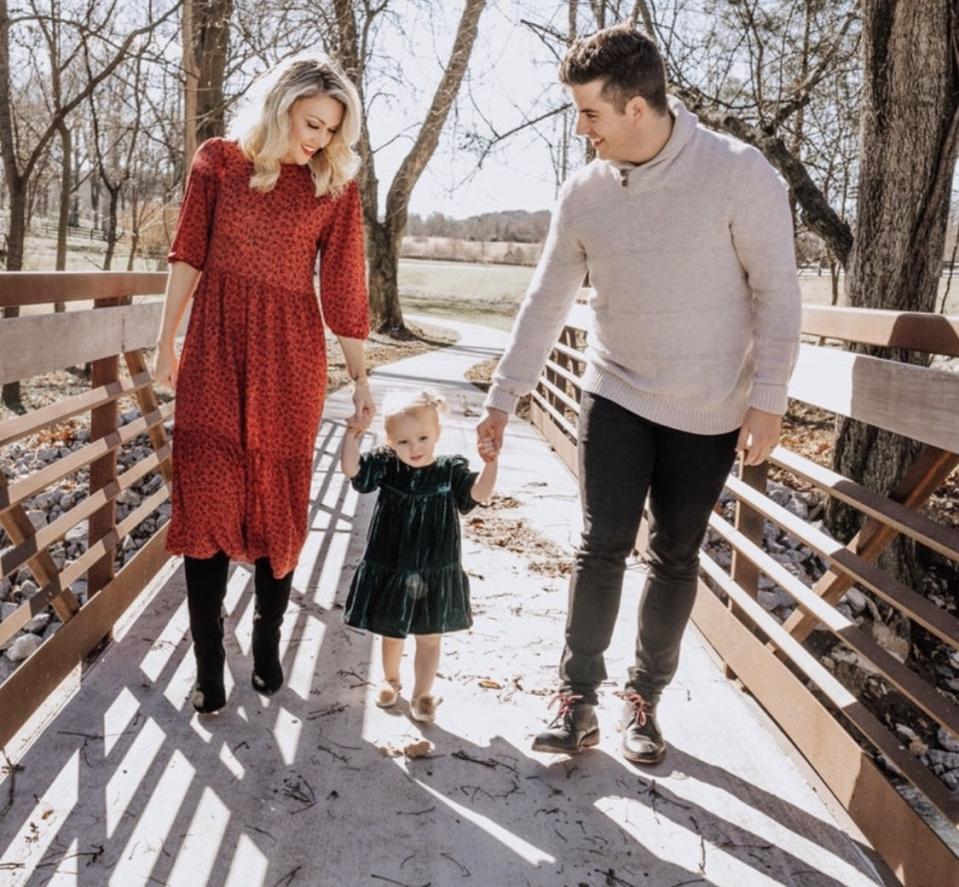
“I was diagnosed with stage IV colon cancer and thyroid cancer in 2014, and after six surgeries, six weeks of radiation, and eight months of chemo, I found out I was cancer free in 2015. Unfortunately, because of the cancer, I was no longer able to carry a baby.
“After trying to find other avenues and not being successful, my sister-in-law, Rachel (who is married to my brother), volunteered as a surrogate for us. At first I said no because I knew this process was risky, but she was insistent that she knew God was calling her to help us start our family. We found out she was pregnant in February of 2017, and in September of that same year we met our daughter Adalyn, who is now two years old and the biggest blessing we’ve ever had.
“Because of something medically that was out of my control, the gift of motherhood was taken from me. My sister-in-law saw the risk of carrying someone else’s child and decided that giving someone that amazing gift was absolutely worth the risk. She had three children of her own and knew how deep the bond of mother and child could be.
“The moment I found out she was pregnant, I was a mother. The moment my daughter was born, we immediately bonded and have been inseparable ever since. It was such an incredible process, and no part of it diminished my experience of becoming a mom. Now my daughter has not just me as a mom, but she has an incredible aunt that she gets to be close to for the rest of her life. The process was absolutely beautiful and selfless, and no part of it diminished motherhood, I actually feel that it enhanced us both as women and as mothers, and I would absolutely recommend it for anyone.”
—Amanda Patterson; she lives in Franklin, Tennessee, with her husband and two-year-old daughter Adalyn
“I don’t know who this judge is, but send her to our place for brunch.”
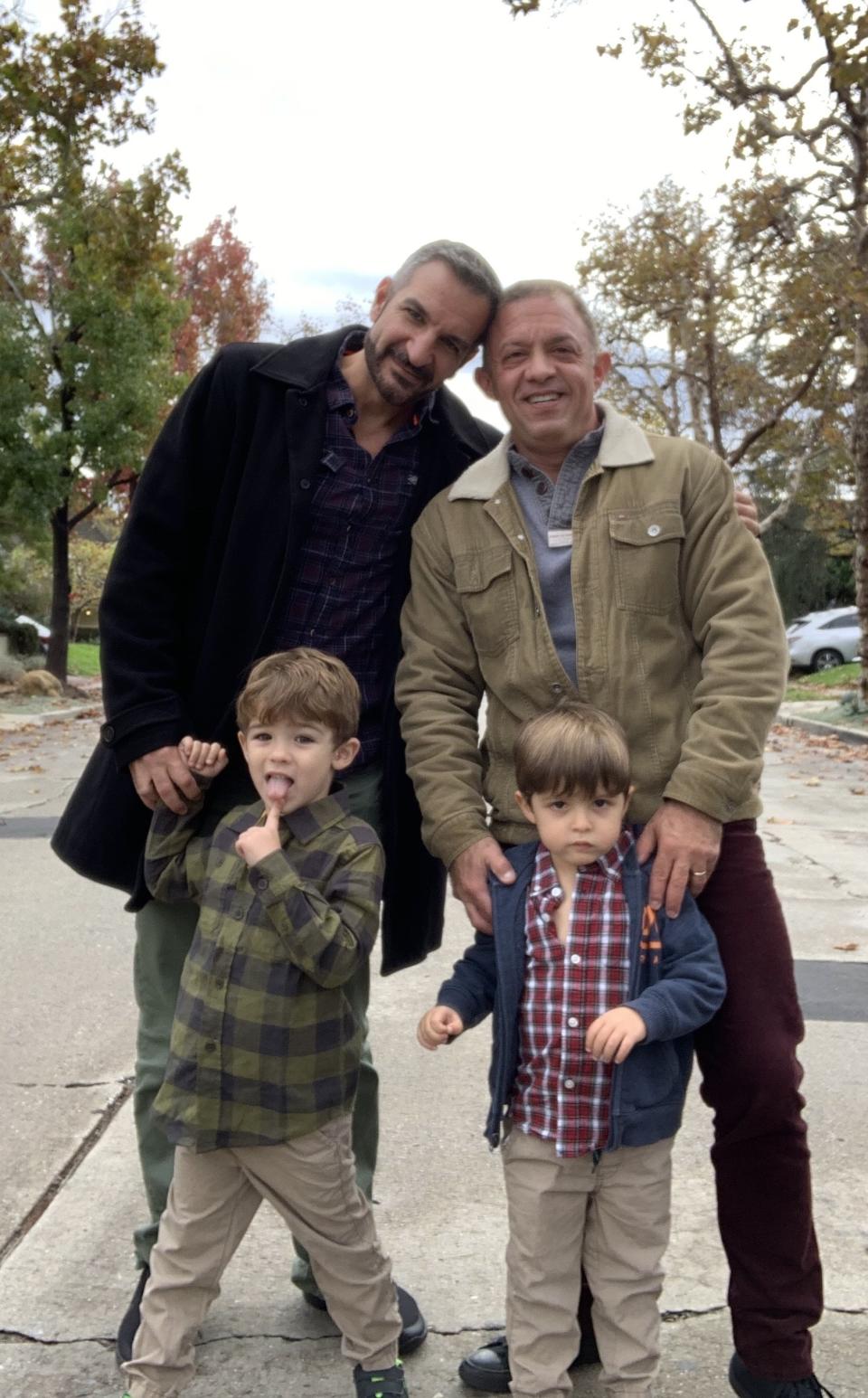
“We talked about other options like adoption, but I’ll be honest—we never considered it very seriously, and the reason why is because, I think, we wanted the same thing that everyone else wants—a biological tie to their children. The process that we did was one where we had one egg donor, and we implanted one embryo fertilized by me and another embryo fertilized by my husband. It came out exactly as we had hoped, in that we now have two children who are considered twins who share the same blood in the form of their maternal DNA, but each one of them is related to one of his fathers biologically. There’s something very beautiful about that—we can’t do what a straight couple can do, but this is about as close as it can get. I actually asked the IVF nurse if it was possible to put a puppy in there too; she didn’t think that was funny at all.
“The biggest reason that I see why people are opposed to surrogacy or gay marriage or gay parenting is because they don’t know any of those people. And the minute they know them and the minute they spend a brunch with them, all of this is erased. I don’t know who this judge is, but send her to our place for brunch. I am more than happy to talk with her.”
—Alex Maghen; he lives in Los Angeles with his husband, Yanir Dekel, and their twin sons; they run Daddy Squared: The Gay Dads Podcast.
“It’s not giving the baby up; it’s giving it back.”
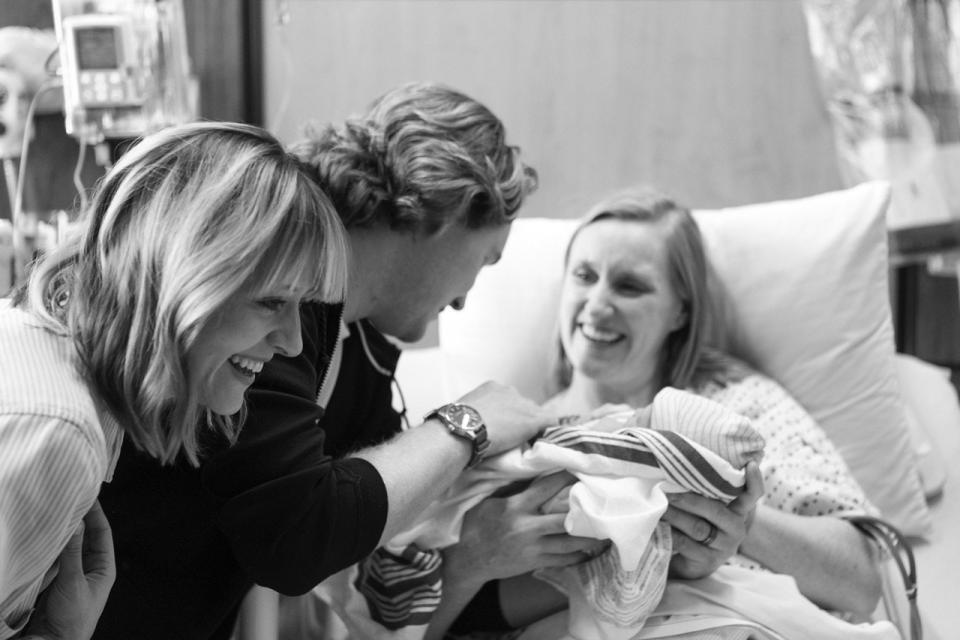
“My body just does not do pregnancy—it’s dangerous to my body. I was advised to not pursue any future pregnancy after my second son, Leo, passed away after being born at 20 weeks. My doctor recommended that while I am not a great candidate for carrying a pregnancy, we were a great candidate for gestational surrogacy. At my son’s funeral, of all places, my sister-in-law approached us and said, ‘This may sound crazy, but if you guys ever wanted to utilize a gestational surrogate, I would be happy to carry a baby for your family.’
“Our first transfer was unsuccessful, but we did another transfer that resulted in my three-year-old daughter, Nora. It was nothing but an exceptional experience. Truly, when I look back on my life as an old woman one day, I have no doubt that I will look back on my experience with my sister-in-law and view it as one of the most profound and wonderful things I got to experience.
“One of the questions I get asked a lot is, ‘Do you feel more connected to your son because you carried and birthed him?’ I literally delivered my daughter. She was born directly into my arms. I have never felt more connected to a human being in my life. It was truly a euphoric experience. So for someone to think that this baby we spent years trying to bring to our family wouldn’t be connected to us is crazy.
“One of the other questions I get for my sister-in-law, and for the woman who is our surrogate now, is, ‘How will you give up this baby?’ It’s not giving the baby up; it’s giving it back. They have no genetic ties to the baby, and they are completely altruistically motivated. I think there’s a lot of misunderstanding without ill intent, and that’s why I’m always happy to answer questions.”
—Kelsey Nixon; she lives in Portland, Oregon, with her son, Ollie, and daughter, Nora; she and her husband are expecting another baby with a surrogate in 2020
“Some give you amazing relationships that turn into family, but others don’t.”
“Surrogacy is very rewarding, but if I were to give someone advice about it, I would tell them they need to come into this knowing it may be different than you expect. For example, in my first journey I didn’t have much of a relationship with my intended parents, and after I gave birth, my thank-you was a hand shake and I didn’t hear from them much after. In my second journey, we had a great relationship throughout the entire pregnancy, but after I gave birth I never heard from them again.
“Some give you amazing relationships that turn into family, but others don’t. When I got matched the first time and met my IPs [intended parents], they cried and told me thank you, and it was an amazing feeling.”
—Brittany Shoemaker; she and her husband live in San Diego and have two children of their own, and she is currently pregnant for a third time as a surrogate
“I would survive whatever test came my way to protect that baby.”
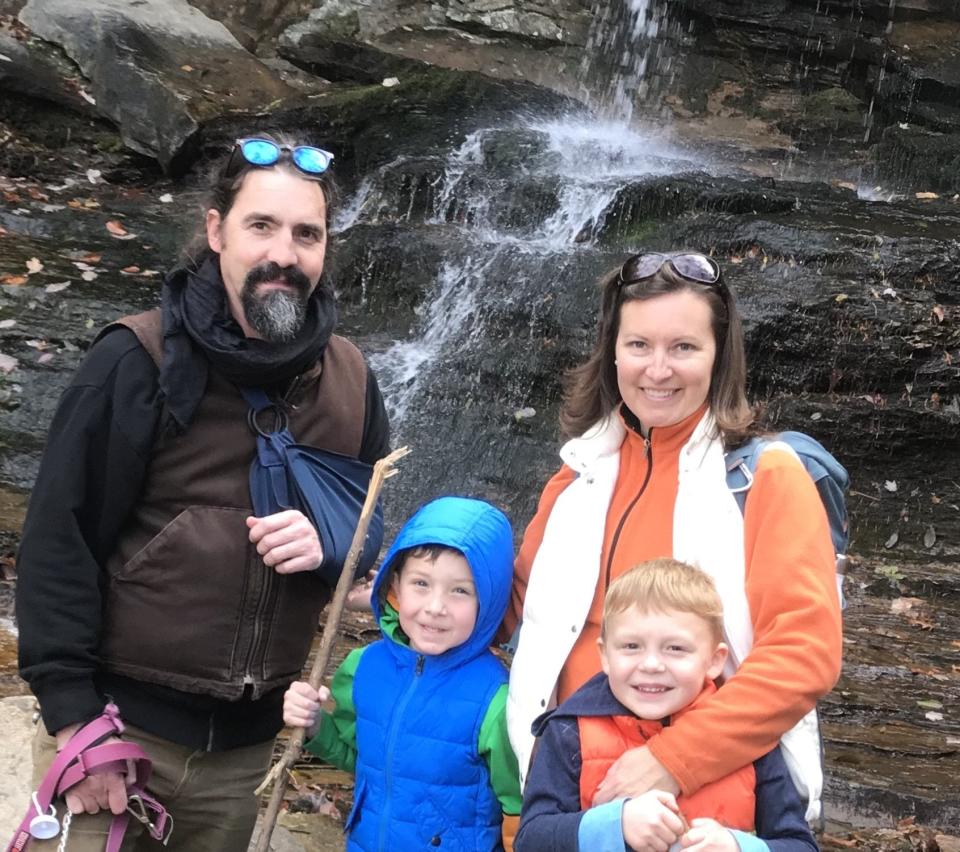
“We tried for six years to get pregnant. The doctors called it unexplained infertility. They told us I might be allergic to my husband’s sperm. They told us we might be incompatible. We tried lots of things to conceive naturally. I filled calendars with notations, charting my cycle for months. The doctors tested me for endometriosis. Then they prescribed Clomid. Then we went the intrauterine insemination route. I lost count after the fourth IUI.
“The doctors told us IVF was the next step. And it was our saving grace. We put the truck up for collateral and took out a loan at the bank to pay for our dreams. It worked on the first try. I can’t even describe what it was like when we saw that heartbeat on the ultrasound at six weeks. It was miraculous.
“Danger to the mother never crossed my mind. Because, hell, pregnancy can be risky. I wanted a child, and I would survive whatever test came my way to protect that baby—just as all mothers have done throughout the millennia. I did have a relative question our decision due to religious beliefs. All this did was make me dig in my heels: ‘Okay then, join me in praying to God that this works.’ Because this will be a wanted child, a cherished child, a prized child. A child of God.”
—Ginny Bowen Olson; she lives in Greensboro, North Carolina, with her husband and their two son and runs the blog Mothersrest
“The motivation to become a surrogate is deeply rooted in a desire to help other people create a family.”
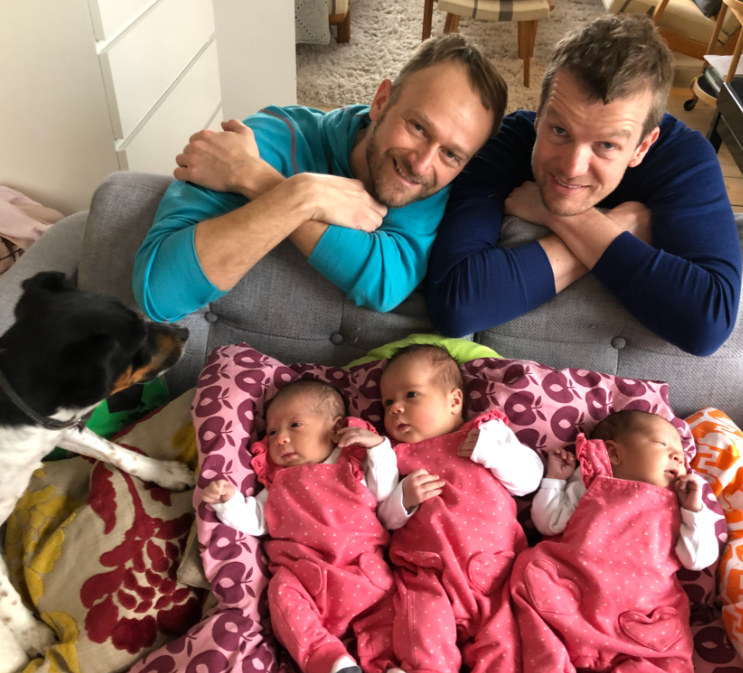
“Our girls came into this world exactly two weeks apart in early 2018. The girls all have the same egg donor, and [my husband] Lars is the biological father to Anna, and I am to the twins. It was important for us that the donor wasn’t anonymous, because we want the girls to meet her when they are old enough to understand how they came into this world.
“Being a surrogate is not for everyone, and it is clearly wrong if it for some reason involves the lack of free will or is done out of financial need. But it is important to remember that for some women, the motivation to become a surrogate is deeply rooted in a desire to help other people create a family. This changes the perspective from a surrogate’s being a victim to her being a strong woman who is bringing something into this world that is deeply beautiful and meaningful. Our three girls have enriched all of us with so much love.”
—Bjarke Damm; he lives in Denmark with his husband, Lars Lundgaard Hansen, and their triplets
Jenny Singer is a staff writer for Glamour.
Originally Appeared on Glamour

